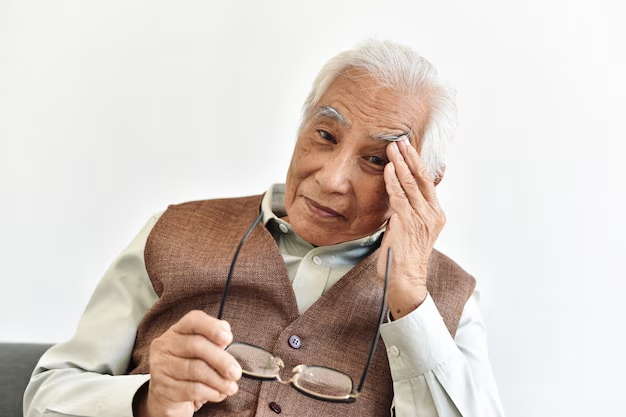Your Guide to Can Parkinson's Cause Dizziness
What You Get:
Free Guide
Free, helpful information about Parkinsons FAQ and related Can Parkinson's Cause Dizziness topics.
Helpful Information
Get clear and easy-to-understand details about Can Parkinson's Cause Dizziness topics and resources.
Personalized Offers
Answer a few optional questions to receive offers or information related to Parkinsons FAQ. The survey is optional and not required to access your free guide.
Understanding the Connection Between Parkinson's Disease and Dizziness: What You Need to Know
Navigating the challenges of Parkinson's disease can be daunting, especially when unexpected symptoms like dizziness arise. If you or someone you care about is experiencing dizziness related to Parkinson's, understanding the root causes and potential solutions is a pivotal step towards managing the condition effectively.
What Causes Dizziness in Parkinson's Patients?
Parkinson’s disease, a progressive neurodegenerative disorder, primarily affects movement. However, its impact isn't confined to motor symptoms alone. Dizziness can be a frequent complaint among Parkinson's patients, and understanding why involves exploring several contributing factors:
Medication Effects: Many Parkinson's patients rely on medications, such as Levodopa, which help manage motor symptoms. These medications, while necessary, can lead to side effects, including dizziness. This occurs often when transitioning from sitting to standing, a phenomenon known as orthostatic hypotension, where blood pressure drops rapidly.
Autonomic Dysfunction: Parkinson’s disease affects the autonomic nervous system, which controls bodily functions such as blood pressure and heart rate. Dysfunction in this system can result in dizziness due to poor regulation of blood circulation.
Balance Issues: As Parkinson’s progresses, balance can deteriorate, contributing to a sensation of dizziness or unsteadiness. This is exacerbated by the disease’s effect on the brain regions responsible for coordination.
Identifying and addressing these underlying causes with a medical professional is crucial in minimizing dizziness. Management strategies may include medication adjustments, physical therapy, and lifestyle adaptations such as rising slowly from seated positions or increasing fluid and salt intake after consulting with a healthcare provider.
Exploring Financial and Supportive Resources for Parkinson's Patients
Living with Parkinson’s can be financially burdensome, particularly as the disease advances. Dizziness and other symptoms may necessitate lifestyle changes, adjustments in care strategies, and possible modification of living spaces for safety. Fortunately, there are financial assistance programs and resources designed to ease the economic impact of managing chronic conditions like Parkinson’s.
Government Aid Programs: Programs such as Social Security Disability Insurance (SSDI) and Supplemental Security Income (SSI) can provide financial support to individuals unable to work due to Parkinson’s.
Medicare and Medicaid: These programs offer coverage that can help offset the costs of medications, outpatient therapy, and other necessary medical services.
Non-Profit Organizations: Groups such as the Parkinson’s Foundation offer grants and resources to help pay for treatments and assistive devices that promote independent living.
Debt Relief and Credit Solutions: For those struggling with medical expenses, exploring credit counseling or negotiating with creditors for reduced payments might provide economic relief.
Accessing these resources can relieve some of the financial strain and improve quality of life, making it easier to focus on health and well-being.
With the complexities of Parkinson’s and its symptoms, including dizziness, facing the journey can feel overwhelming. However, by understanding the causes and taking advantage of available resources, individuals can navigate this challenging path with greater confidence and support.
🌟 Resources for Parkinson's Patients:
- 💼 Social Security Benefits: Explore SSDI and SSI for monthly income support.
- 🏥 Medicare/Medicaid: Covers essential treatments and therapies.
- 📚 Non-Profit Assistance: Seek grants from organizations like the Michael J. Fox Foundation.
- 💳 Credit Counseling: Manage medical debt with financial guidance services.
- 🎓 Educational Opportunities: Engage in courses or workshops that focus on managing life with Parkinson’s and enhancing personal care strategies.
What You Get:
Free Parkinsons FAQ Guide
Free, helpful information about Can Parkinson's Cause Dizziness and related resources.

Helpful Information
Get clear, easy-to-understand details about Can Parkinson's Cause Dizziness topics.

Optional Personalized Offers
Answer a few optional questions to see offers or information related to Parkinsons FAQ. Participation is not required to get your free guide.


Discover More
- Are There Environmental Causes Of Parkinsons
- Can Alcohol Cause Parkinson's
- Can Concussions Cause Parkinson's
- Can Concussions Cause Parkinson's Disease
- Can Dogs Get Parkinson's Disease
- Can Dogs Get Parkinsons
- Can Dogs Have Parkinson's
- Can Dogs Have Parkinson's Disease
- Can Females Get Parkinson Disease
- Can Head Trauma Cause Parkinson's
